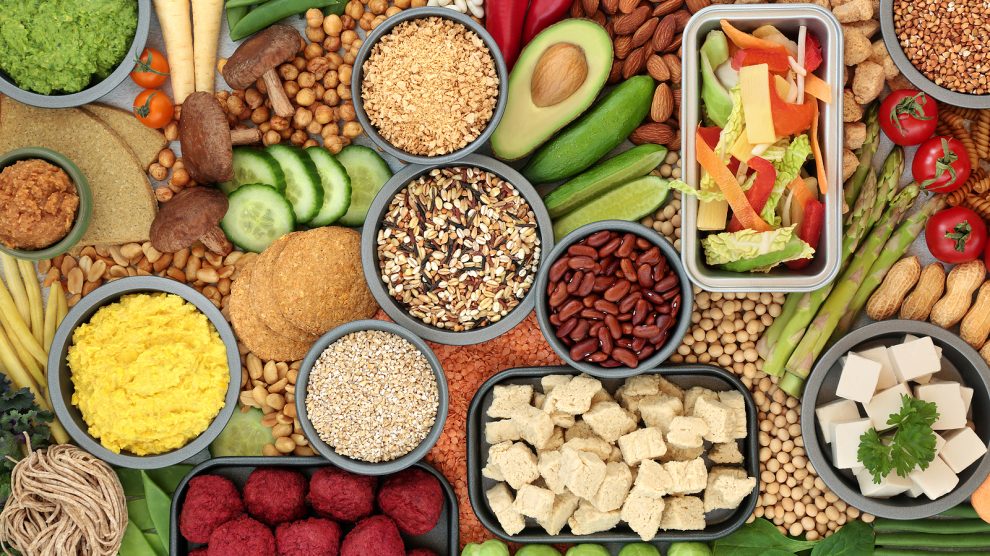There is a wide dichotomy between what consumers in Central and Eastern Europe think will make the food chain more sustainable, and what they are prepared to do in order to make it happen.
More than 70 per cent of consumers across Central and Eastern Europe are willing to spend more money on food that protects the planet, and two thirds are willing to adjust their diet to meet climate and human development targets.
At the same time, however, most consumers still fail to understand just how much damage carbon-intensive farming is doing to the environment.
These are some of the key findings that emerge from a major new report, The Future of Food, published this week by Emerging Europe.
- Eastern European growth weaker, but resilient
- Harnessing talent in Europe’s regions most challenged by migration
- In search of flódni: Postcards from the Jewish Quarter
The report includes the results of a survey looking at consumer attitudes across all 23 countries of the emerging Europe region and reveals that while consumers are increasingly aware that they should be eating healthier and more nutritious food, they are not always willing to do so, in many cases put off by the cost of making healthier choices.
Cost is an issue
Indeed, for more than half of all respondents (53 per cent), the cost of food is the primary factor influencing their purchasing habits, although there are wide variations across the region.
It comes as no surprise for example that cost is most cited as the primary factor in those countries hit hardest by high inflation over the past year, such as Hungary and the three Baltic states, Estonia, Latvia, Lithuania.
“What is really surprising and disappointing is the fact that consumers in emerging Europe do not see the connection between red meat production and how it affects the climate,” says Andrew Wrobel, founder of Emerging Europe.
“While 70 per cent of respondents across the region are willing to spend more money on food that protects the planet and two thirds are willing to adjust their diet to meet climate and human development targets, almost 56 per cent believe that the impact of meat production on the environment has been exaggerated and are not yet convinced about the need for change.”
According to data from the United Nations Food and Agriculture Organisation (FAO), 14.5 per cent of all human-caused greenhouse gas emissions are attributable to livestock farming.
“It is clear that we need to raise awareness about that and work collectively on understanding the consequences of our diets,” adds Wrobel.
More collaboration needed
Besides consumer attitudes, the report – which includes input from major retailers, producers, international finance institutions and environmental NGOs – also takes an in depth look at what the region needs to do in order to make itself more resilient and sustainable when it comes to food supply – an issue that has jumped to the forefront of the policymaking agenda since Russia’s invasion of Ukraine threatened to disrupt the global trade in grain and fertilisers.
The report concludes that regional, collaborative approaches will be needed to address shared problems in food systems, and that the region must provide opportunities for collaboration and co-creation among diverse stakeholders.
“Stronger articulation and engagement among farmers, retailers, and policymakers will be able to help identify and implement sustainable food solutions, creating a clear farm to fork strategy. Transforming food systems will require the integration of various stakeholders and cooperation across both sectors and borders,” says João Estevens, the report’s lead researcher.

Technology and innovation
Technology will also have a key role to play, and the report also includes a section dedicated to the innovative start-ups who are using – and in some cases creating – the tools that will allow us to adopt more sustainable farming methods.
Many of the start-ups, such as Slovenia’s Juicy Marbles, or Kyiv-based EAT ME AT are dedicated to developing alternatives to beef that are every bit as tasty and nutritious as the real thing.
“People still cruelly keep and kill animals because meat is tasty, not because we need it for survival,” says EAT ME AT’s CEO Andriy Cheruka. “Our product, plant-based meat, gives people an alternative to animal meat. It is a 100 per cent vegan product that allows consumers to prepare their favourite dishes.”
This is an important point. While plant-based meat is an increasingly popular alternative to traditional meat for people who follow a vegan or vegetarian diet, if any kind of dent is to be made in the amount of environmental damage caused by bovine farming, it needs to be an accessible and affordable option for those people who are simply looking to reduce their meat consumption.
Copies of the report, The Future of Food, can be downloaded for free here.
Unlike many news and information platforms, Emerging Europe is free to read, and always will be. There is no paywall here. We are independent, not affiliated with nor representing any political party or business organisation. We want the very best for emerging Europe, nothing more, nothing less. Your support will help us continue to spread the word about this amazing region.
You can contribute here. Thank you.







Add Comment